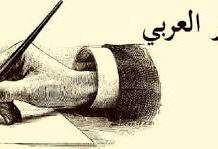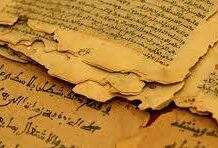The Position of the Arabic Language in the Present-day World
The Position of the Arabic Language in the Present-day World
The Position of the Arabic Language in the Present-day World
Arabic is now the mother tongue of 264 million people. It is the fifth most populous language in the world. The Arabic language was originally confined to Arabia, although it has been spreading worldwide since the 6th century AD, and continues to this day. As a result, the Arabic language has gained a respectable place in the world today. Even the United Nations adopted Arabic as its sixth official language in 1973. The Arabic language has not attained its present status in a day, instead, this language has taken almost one thousand and five hundred years to achieve this status. Of course, a number of factors have contributed to the conversion of Arabic into such a dignified language. These factors are discussed below.
(a) Until the 5th century AD, the Arabic language was restricted to Arabia as a branch of the Semitic language. But many poets and orators were born in Arabia between the 5th and 6th centuries. They gave birth to many poems of their own genius. In poetic power, their poetry was incomparable and unprecedented. As a result, the Arabic language has become quite widespread and popular. These poems were later translated into various languages of the world and other languages were influenced by this language. As a result, the status of the Arabic language and literature has increased.
(b) Another powerful reason why Arabic is now the most respected language in the world is that it is the language of the Koran and Hadith, the main texts of Islam. Muslims around the world learn the Arabic language and practice Arabic literature to understand the basics of Islam. As a result, the status of the Arabic language has increased and its position has become higher.
(c) Another reason for the current status of the Arabic language is that during the Islamic period, especially during the Abbasid rule, many research books were written in Arabic. For example, from the 8th century to the 12th century, in Islamic countries, extensive research was done on mathematics, geography, astronomy, chemistry, physics, law, philosophy, linguistics, economics, music, etc., and many valuable books were written on these subjects. During the Middle Ages, the whole of Europe was plunged into darkness but the Arabs had reached the highest level of knowledge. Their books were later translated into various European languages and some knowledge-seekers learned Arabic to gain that knowledge in the original Arabic language. As a result, the Arabic language gained a special status.
(d) In medieval politics, Muslims played a monopoly role. For example, Hazrat Omar, the second caliph of Islam, during his ten-year reign spread the Islamic empire throughout Persia and Rome. This was followed by the political domination of the Muslims in the Indian subcontinent. At that time Arabic was used as the language of politics and diplomacy. As a result, the Arabic language spread beyond the Arabian Peninsula to the whole of the Middle East, Asia, Russia, and Africa. In this way, for political reasons, Arabic has become a privileged language.
(e) The linguistic features of the Arabic language have also contributed much to becoming a worldwide language. This is because Arabic is one of the most beautiful, melodious, and rational languages in the world. A word in this language can provide a lot of meaning with a little structural change. For example, there are sixteen words to mean the ‘moon’, thirty words for ‘rain’, twenty-one words for ‘travel’, fifty-two words for ‘darkness’, fifty words for ‘cloud’, and ninety-one words for ‘length’. There are different words to denote the hour of the night and more than a dozen words to denote a ‘bow’. Thus the vocabulary of the Arabic language is enviably richer than the other languages of the world. As a result, Arabic has easily become an international language.
(f) The importance and prestige of the Arabic language has also increased considerably in recent times for economic and commercial purposes. Many natural resources have been discovered in the Arabian Peninsula, as well as in the Arabic-speaking Middle East, since the 1980s. One of them is petroleum. Almost all the countries in Europe depend on these Arabian countries for petroleum. That is why non-Arabic people opt to learn Arabic to get business benefits. As a result, the Arabic language has become more important.
These factors have made the Arabic language one of the most respected languages in the world. 0 0 0. The Position of the Arabic Language in the Present-day World
The Position of the Arabic Language in the Present-day World
Read More: A Brief History of Arabic Literature: Early Islamic Period (622 AD-661 AD)
The Position of the Arabic Language in the Present-day World
N.B. This article ‘The Position of the Arabic Language in the Present-day World’ originally belongs to the book entitled ‘A Brief History of Arabic Literature: Pre-Islamic Period (500 AD-622 AD) by Menonim Menonimus. The Position of the Arabic Language in the Present-day World
Related Searches:
Books of Literary Criticism by M. Menonimus:
- World Short Story Criticism
- World Poetry Criticism
- World Drama Criticism
- World Novel Criticism
- World Essay Criticism
- Indian English Poetry Criticism
- Indian English Poets and Poetry Chief Features
- Emily Dickinson’s Poetry-A Thematic Study
- Walt Whitman’s Poetry-A Thematic Study
- Critical Essays on English Poetry
- Tawfiq al-Hakim’s Novel: Return of the Spirit-An Analytical Study
- Tawfiq al-Hakim’s Novel: ‘Yawmiyyat Naib Fil Arayaf’-An Analytical Study
- Analytical Studies of Some Arabic Short Stories
- A Brief History of Arabic Literature: Pre-Islamic Period (500 AD-622 AD)
- A Brief History of Arabic Literature: Early Islamic Period (622 AD-661 AD)











